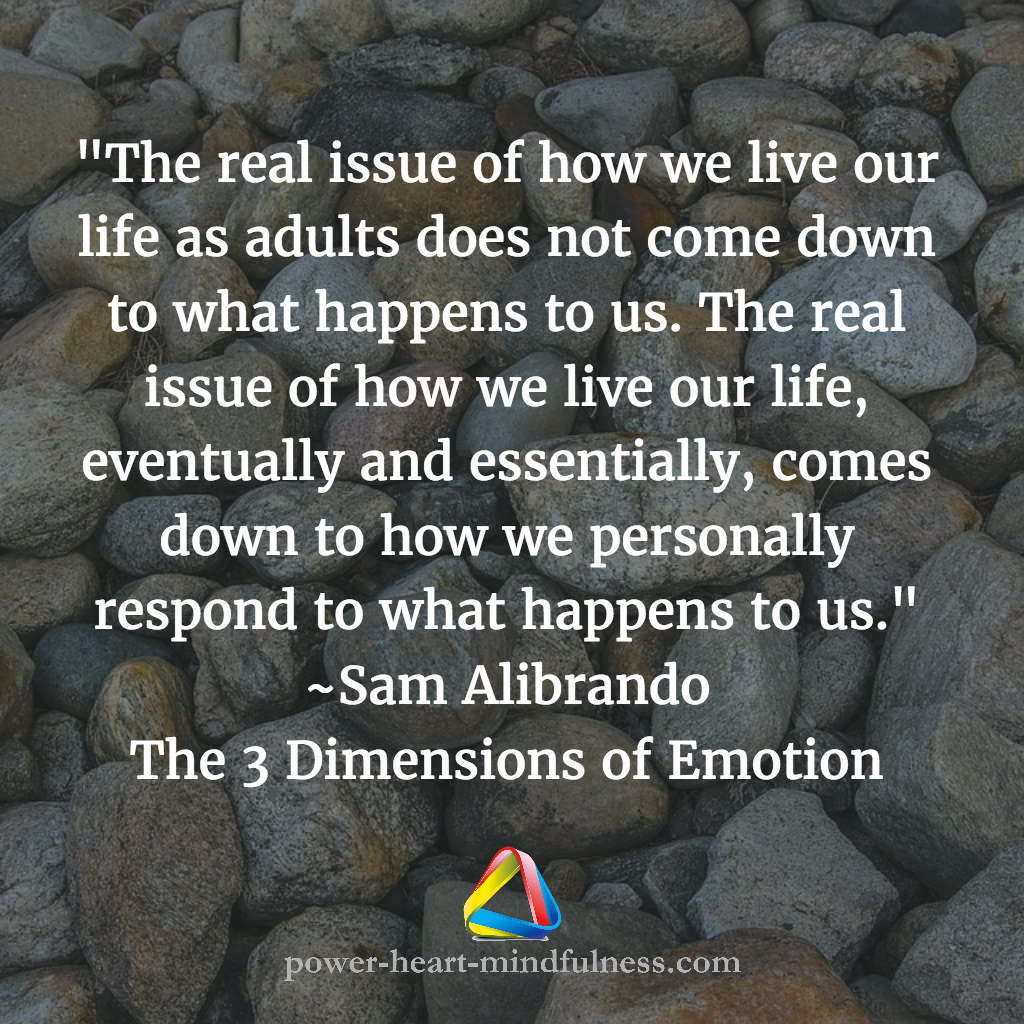Donald Trump is president elect. And unless you’ve been asleep for the past week, you’re aware that there has been an unparalleled reaction to the surprising outcome of the election. As I talk to friends, clinical clients and business clients, I’m seeing unprecedented personal and collective feelings of despair, anger and anxiety. (I suppose that if Hillary Clinton had won the Electoral College but lost the popular vote, many Trump supporters would be equally unhappy.)
I have—like most people—opinions about this election and its candidates. But that is not the purpose of this article. The intention of this article is to present a model to help the large number of people who are notably pained by recent events to respond with emotional intelligence rather than react. I will organize my thoughts around the three dimensions that I write about in both of my books: these are Power, Heart and Mindfulness, respectively.
Many people are seriously depressed as a result of the election. For example, I talked to a female client this week who relived the abuse she experienced as a child growing up as a person of color. Many others report feeling powerless as they anticipate the undoing of any progress they value that has been made in the last several years (e.g. toward gender equality, environmental treaties, a living wage, gay rights, health care, etc.)
The feelings of helplessness and hopelessness are at the very foundation of depression. The antidote for helplessness and hopelessness lies in the personal and corporate realm that I call Power—commonly referred to as agency. I suspect that this need for agency is behind the protests springing up in cities across America (and throughout the world). Having a voice is an antidote for depression. For those pained by the outcome of this election, I suggest that you feel your feelings. Feel your sadness; feel your fear. Grieve! But don’t stop there. Get up and do something proactive. Use people like Martin Luther King or Nelson Mandela as your example. How many times were they knocked down? I am sure they cried privately but they also cried out publicly.
We do not know how Donald Trump will govern. If he keeps his campaign promises, we might expect his reign would be characterized by hate and fear. The remedy for hate and fear has always been the same throughout history: Love. So whom should we love? First we should love and support each other. Knowing that we are not alone and that we share a similar value system can go a long way to sustain us during a difficult time.
Second we should “love our neighbor as we love ourselves.” It is said, “All politics is local.” Well I say, “All love is local.” What can we do to help the poor, the maligned, the hopeless within our reach? What can we personally do to protect our environment? What can we do for all the injustice around us regardless of who is president or sits on the Supreme Court?
Finally, we should “love our enemies.” And who are our “enemies” if not those whose values differ from our own? One of the main ways that we can “love our enemies” is by truly and deeply listening to them, looking for the humanity beneath the differences. In order to do this we have to remind ourselves that listening is not agreement; it’s simply respecting the person as a person.
So what do we do with feelings of resentment, fear, anxiety and depression? We feel them, that’s what we do. And how in the world do we do that? By practicing mindfulness! Mindfulness is the ability to step back and think about a situation rather than react to it. (Think Dorothy’s Scarecrow.) It is the capacity to be calm in a storm and differentiated from provocations. It employs the Observer Within to watch and “hold” the feelings without acting them out or succumbing to them. Mindfulness endures disappointment and “not-knowing.” Mindfulness also has to do with acceptance. By acceptance I do not suggest being passive, settling or acquiescing but acknowledging what is, as it is. Donald Trump is going to be the 45th President. And don’t forget to breathe. One of the main tools of mindfulness is breathing through the pain (as a mother in childbirth breathes through a contraction).
The beauty of the tripartite model of Power, Heart and Mindfulness becomes apparent when we dynamically integrate all three dimensions together at the same time in the same person. How might this kind of emotionally intelligent person respond? They would feel their feelings and not deny them. They would seek and surround themselves with people of like mind for mutual support and encouragement. They would invite the Observer Within to mindfully contain the many painful feelings; and accept the reality of what is without passivity, acquiescence or compromise. When given the chance, he or she would mindfully and lovingly listen to their “enemies” to understand their humanity. And from that mindfulness they would turn their anger into proactivity. Rather than falling victim to helplessness and hopelessness, they would be determined to play their part in making society better.
